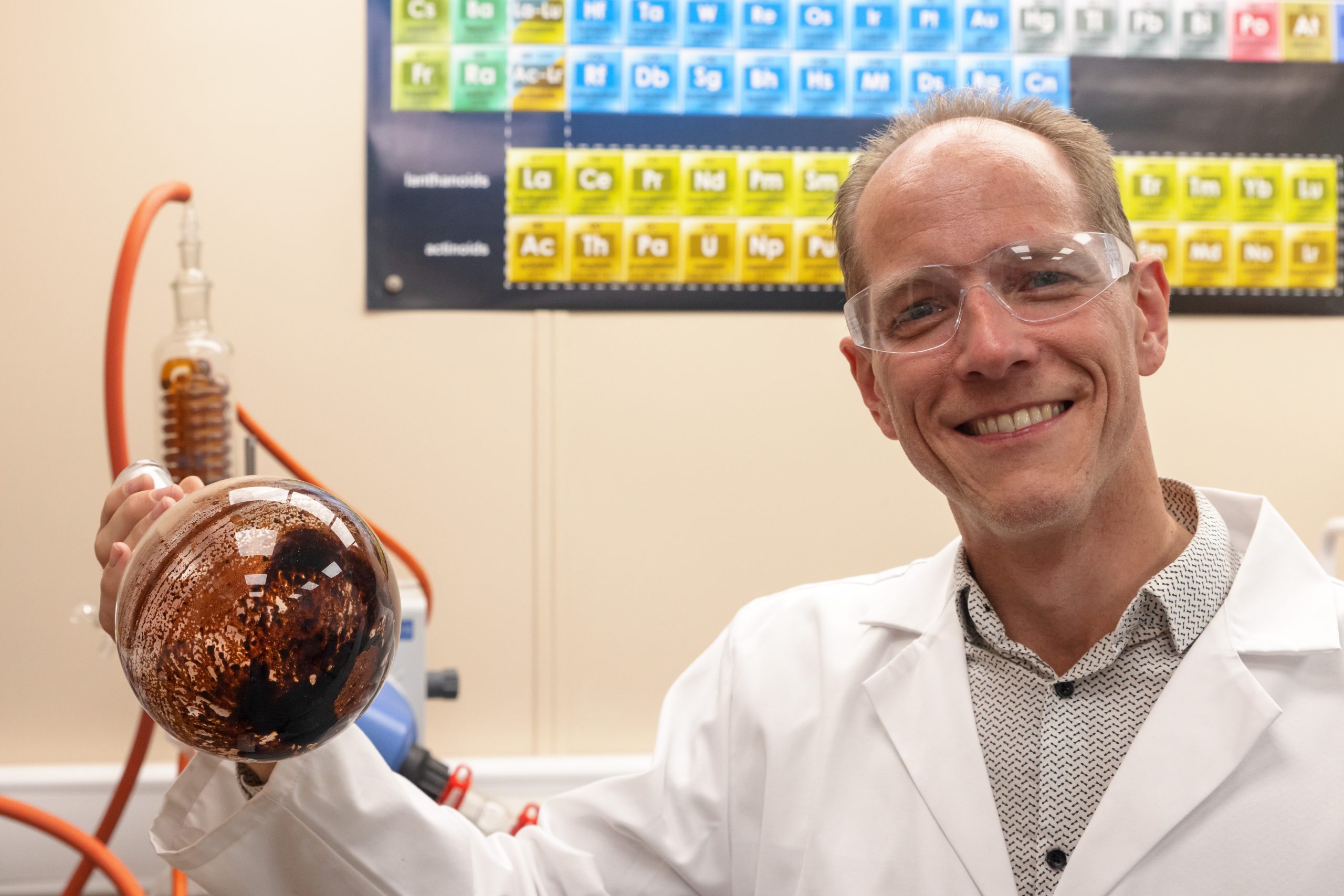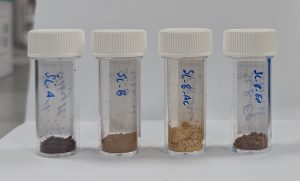
Congratulations to Dr Andrew West, Fellow of the Royal Society of Chemistry
Sonichem is celebrating the exciting news that our Chief Chemist, Dr Andrew (Andy) West, has been made a Fellow of the Royal Society of Chemistry (FRSC)! This prestigious award is testament to Andy’s long-time interest in practising and promoting sustainable chemistry in both industry and academia, helping to inspire the next generation of chemists. Here, Andrew talks about what piqued his interest in sustainable chemistry and how that developed into a stellar career.
Sustainable Chemistry from the beginning…
I began my career studying at the University of Leicester, where I obtained a Master of Chemistry degree with first class honours, then a PhD in synthetic organic/inorganic chemistry in the field of recyclable heterogeneous and homogeneous catalysts. I became very interested in sustainability during this time, particularly in looking at how chemistry processes could be improved to make them less damaging to the environment. I went on to do a postdoc at Queen’s University Belfast, again looking at sustainability and exploring different ways of working that could potentially displace petrochemicals.
Bio-Based Chemicals and Sonichem
After my postdoc, I joined Melton Mowbray company Pera, a contract research organisation involved in a host of different sectors, including bio-based applications and chemistry. It was a very varied role, with opportunities to engage with a wide range of topics, from making bread out of barley instead of wheat, to producing chemicals from pig slurry. It also included a project with Sonichem – then known as Bio-Sep – which was to prove important to my career development a few years later. A move from industry to academia followed, when I joined Coventry University to investigate ways of making buildings more sustainable, looking at how the carbon footprint of concrete could be improved, and buildings designed to be disassembled at the end of their lifespan rather than demolished into a pile of rubble.
The persuasive argument for sustainable chemicals
A couple of decades ago, there was much less interest in sustainability, which was then considered a trailblazing concept. That has all changed in the intervening years and, today, people are far more aware of the impact mankind has on the planet, and the need to take action to minimise this. The public is starting to question the overuse of packaging and the air miles involved in the food supply chain, and businesses are all too aware of the ever-increasing price of oil. The challenge with any sustainable option is to provide credible solutions offering both environmental and financial benefits, as this encourages their adoption by businesses and individuals. They need to be convinced that any new solutions are not only sustainable, but also easy to implement and use, and affordable. In fact, switching from a petrochemical source to a biological one is not only more sustainable and environmentally friendly, but can also increase profit margins. Import duty is not payable on products made in the UK, and you don’t incur the extensive shipping costs associated with using materials from around the world. So, if a bio-based version of a product is 10 % more expensive, but you save 20-30 % in shipping and import duty, suddenly it’s worth doing. This is where companies like Sonichem come in.
I’d kept in touch as a consultant for Sonichem since my Pera days, so when the company wanted to develop its technology from early-stage research to a commercial reality and asked me to become its Chief Chemist, I was pleased to accept. Our process uses material that is on the doorstep – woody biomass that is available anywhere in the country where there is forestry. Instead of shipping material thousands of miles from, for example, Brazil or North America, we can make chemicals in the UK without the transport miles that would otherwise be part of the process. On top of that, forestry captures carbon in a very short period of time – 30 years as opposed to hundreds of thousands of years in fossil fuels. It’s a really interesting way of making sustainable chemicals.
The road to becoming a Fellow of the Royal Society of Chemistry (FRSC)
The Royal Society of Chemistry (RSC) has a range of membership categories that you progress through as you gain experience. You can join as an associate member while you are studying, and then apply to become a member once you have graduated. That opens up opportunities for further professional development, for example, to become a Chartered Chemist or Chartered Scientist, formally recognising your knowledge and skills – and how you apply them – and a commitment to maintaining high professional standards and continued learning. FRSC takes this a step further. As well as demonstrating your skills by working in the field for a period of time, you also need to show leadership and actively promote the chemical sciences. It’s about being an ambassador for the chemical sciences, getting involved with the RSC and giving something back.
One way of getting involved with the RSC is to join a special interest group. I sit on the committee of the Applied Materials Chemistry Group, a network of people with similar interests across the materials sector. These member networks form a large part of the RSC’s activities, opening up opportunities to share knowledge and experience with your peers, as well as to ask for advice. They are a great way of sharing knowledge; it’s amazing how much overlap there is between the various fields of chemistry, and the RSC is very good at getting people in different sectors talking to each other and solving common problems. There are also opportunities to collaborate with the RSC to co-host events such as the Chemical feedstocks for sustainable industry at Burlington House on the 1st of December, which Sonichem is jointly sponsoring.
Inspiring the next generation
Being a fellow is not just a job, it’s a vocation, a way of life. It’s something you do because you’re passionate about the subject and want to get the next generation interested in chemistry; a qualified chemist has a career for life, they will always be employable. The RSC’s Outreach programme is a great way of engaging with future scientists. There is a chemistry aspect to everything in life – the things you handle, the car you drive, the train you get on, the sandwich you eat – but when I visit a school and ask the students to name something where a chemist has had an impact on their life, the vast majority can’t. That all changes when I start asking questions: Did anybody have a painkiller this morning? Have you turned your mobile phone on? What do you think is in the screen? What’s in the battery? What’s the case made of? You’re wearing glasses, what are the frames made of? You’re wearing clothes, what’s the fabric made of? In a school lab, science is about mixing things in test tubes and seeing the reaction, and it’s amazing when they realise the impact that chemistry has in the real world.
Industry or academia?
I was told quite early on in my career that I would have to choose either an academic or an industrial career pathway, but that’s not been my experience at all. I’ve moved between the two without a problem, you just need to understand that the needs and challenges are different. Whatever the application, you can have an impact on the end product by just changing some very minor things in lots of cases. It’s about looking at what we are currently doing and asking how we can do it more sustainably. There is no need to choose between industry and academia – you can have both!






